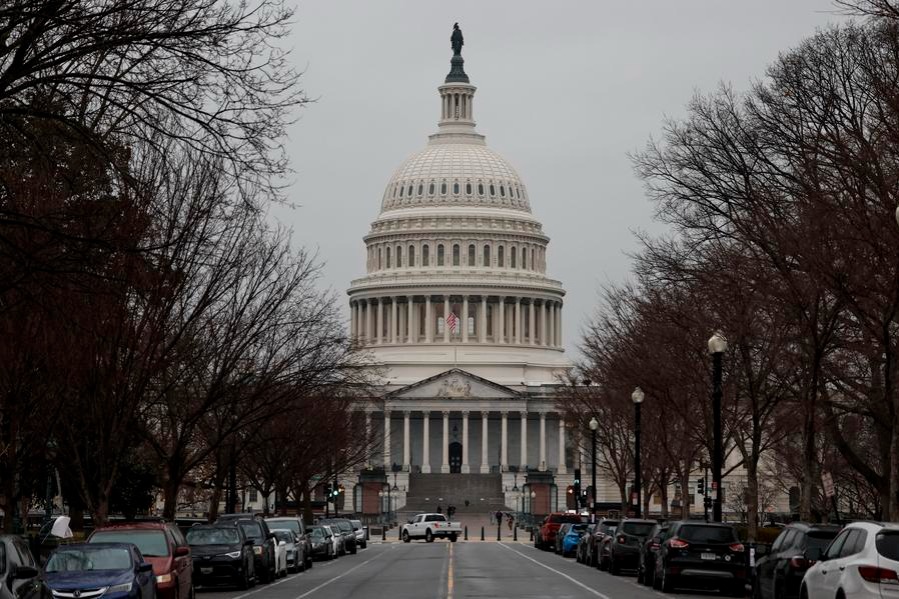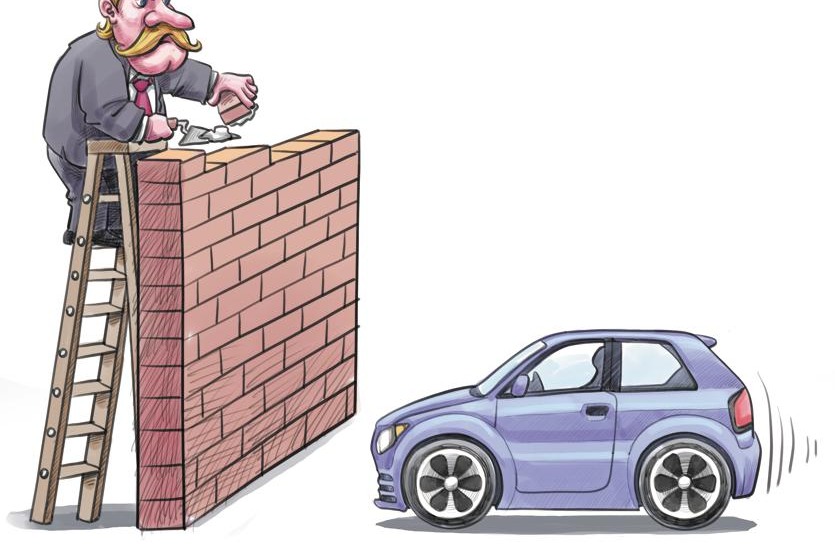US-inspired violence a threat to democracies


On Jan 8, thousands of pro-Bolsonaro insurrectionists stormed the Square of the Three Powers, the seat of political power in Brasilia, many of them carrying signs and placards that read "We do not want a Communist Brazil".
Their aim was to trigger a state of emergency that would allow the country's military to, in effect, stage a coup against the democratically elected president Luiz Inacio Lula da Silva and re-install the defeated president Jair Bolsonaro.
In the days leading up to the events, Brazilian intelligence officials warned of the possible outcome of such an openly violent gathering. Given that this was known so widely, many in Brazil question how it was so easy for the rioters to organize and then barge into the country's Congress, Supreme Court, and presidential palace in the face of almost no initial opposition by security forces.
Once inside, the angry mob vandalized the buildings, defaced national treasures, and attempted to set furniture on fire, all while calling on the military to intervene. As the day unfolded, the federal government stepped in, only to see participants run to the headquarters of the army, where officials were blocked from arresting participants.
The Brazilian authorities are now investigating the intricacies of the riots, including possible connivance by pro-Bolsonaro officials and financing by various interest groups.
But a greater question lingers: what was the spark behind this fiery movement that almost toppled Latin America's largest democracy? And can it light other violent events?
Certainly, many factors were behind the Jan 8 violence in Brazil. However, central to its rise is a culture of intolerance that finds its roots in the US political system, from which it has spread to the rest of the world.
The US touts itself as an open and tolerant society, but the rhetoric and actions by figures on the left and the right have shown that it only goes so far.
Historically, the limits of US tolerance have revealed themselves more evidently in Latin America, where the United States has continuously staged or backed movements against governments that do not correspond to its economic and political preferences. The embargo on Cuba since the 1960s, the toppling of Chile's Salvador Allende in 1973, and the support given to the ouster of Bolivian President Evo Morales in 2019 stand as examples of that intolerance.
More recently, the US has taken aim at China, warning other countries from getting too close to Beijing. Specifically, the Joe Biden administration has framed its vision of international politics today as a false dichotomous contest between democracies and autocracies, in which great powers struggle "to show which system of governance can best deliver for their people and the world", according to the National Security Strategy.
This vision is not only false, but also has backfired. In the US, the inability to respect and listen to other perspectives internationally has resulted in an unprecedented state of polarization domestically.
An August 2022 poll conducted by Pew found that both Republicans and Democrats viewed members of the other party as more close-minded, unintelligent, lazy, dishonest and immoral than the average American at higher rates than in 2016. The average of those that used four or more of these traits to describe members of the other party climbed from 26 percent to 48 percent.
As polarization has grown, distrust has spread. When 61 percent of Republicans polled by Monmouth University say they believe that President Joe Biden didn't win the elections fairly in 2020, it's no wonder thousands of them hit the streets of Washington on Jan 6, 2021, violently occupying the US Capitol. Intolerance, disinformation and violence have advanced hand-in-hand, as the anti-communist rhetoric used by Biden has been turned on its head to be used against the Democratic president himself.
As the investigations into this year's protests in Brazil unfold, the strong links between the far-right movement in the country and the US are coming into plain sight. For example, Jair Bolsonaro's son, Eduardo — the same person who blamed China for the COVID-19 pandemic in 2020, using the racist term "China virus"— has been known to maintain close relations with people in former US president Donald Trump's circle, such as Stephen Bannon, who a day after the Jan 8 riots in Brazil posted online that "the criminal atheistic Marxist Lula stole the election and the Brazilians know this".
Outside of Brazil, other leftist leaders have been targeted by US conservatives. For instance, Republican congresswoman Maria Elvira Salazar called Colombian President Gustavo Petro "a thief, a terrorist, and a Marxist", while warning that the country would follow the path of Cuba, Venezuela and Nicaragua with his victory.
The insurrection may have failed. But the intolerance that spurned it in the first place remains. It may in fact have become emboldened. Rather than embrace this politics of division and blocs, societies in Latin America and elsewhere would do well to adopt a more tolerant posture, one that, as Chinese President Xi Jinping has called for, advocates for an open dialogue of civilizations. Otherwise, they may find that the greatest threat to democracy in the region comes not from the left but from the culture of intolerance that spreads from the superpower up north.
The author is a researcher and professor at Universidad Externado de Colombia. The views don't necessarily represent those of China Daily.
If you have a specific expertise, or would like to share your thought about our stories, then send us your writings at opinion@chinadaily.com.cn, and comment@chinadaily.com.cn.


































